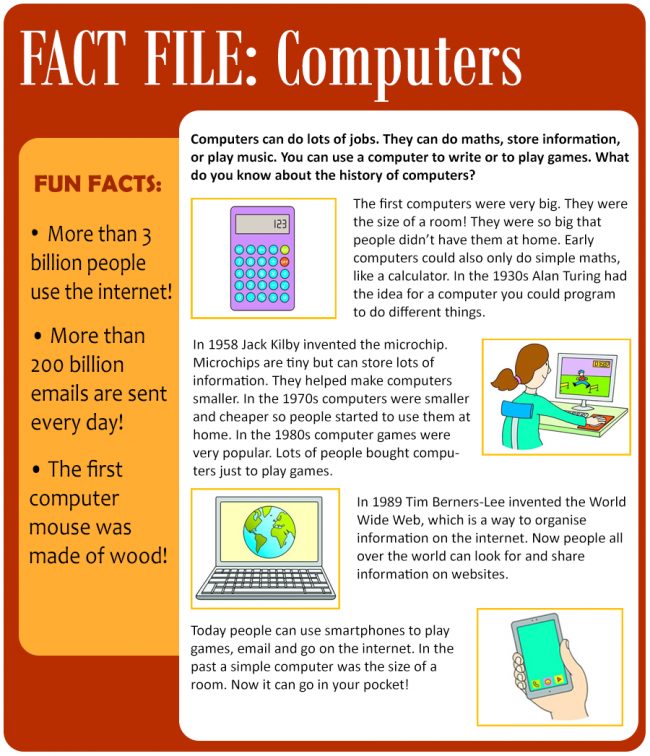|
Task 1.

Descriptors: Identify the main idea of the theme.
Task 2. Use the phrases to make sentences about the items in the pictures.    
mouse webcam scanner keyboard
   
screen CD/DVD drive printer speakers
Example: We use a webcam to see people through the Internet.
Descriptor: Make up sentences correctly.
R1. Task 3. Text 1 Is the Internet good or bad? Teens cannot live without the Internet and spend most of their time on it. Is this a good thing? The Internet is a useful tool. You can find information on any topic and use it for schoolwork and projects. Also, the Internet helps communication. You can chat or send emails to your friends wherever they are. On the other hand, the Internet can be harmful. If you spend too many hours online or in front of the screen, it can damage your eyes. The Internet can also distract you from real life. You may avoid hanging out with your friends or neglect your homework. All in all, the Internet is helpful in learning and communications. However, teens must use it sensibly. Text 2 Are computer games Good or Bad for teenagers? Computer games are becoming more and more popular with teenagers. Is this good or bad? Computer games can be good for teenagers.1) Firstly, some games are educational. 2) For example, they can improve your maths, reading and problem-solving skills. 3) Also, they are a safe way to spend your time. If you are at home with your friends, your parents know where you are. 4) On the other hand, some people believe that playing computer games is bad. They say that some games are very violent. They could change your personality or even encourage you to commit crimes. They can also distract you from more important things. You may fall behind with your homework, 5) for instance. 6) All in all, there are both good and bad things about playing computer games. 7) However, teens should be careful about the kind of games they play.
Descriptors: Learners will sound the words correctly.
W1. UE2 Task 4 
Look at the graph. Use the key and the phrases the majority, a lot of, some, a few, very few to talk about teenagers and how they use their computers in the USA. |
KEY
| communicate with friends/surf the Net play games/download music | general usage, make videos, save files, prepare PowerPoint presentations, burn CDs/DVDs, make music compilations | homework reading/learning news other (design a web page) |
Example: The majority of teens in the USA use their computers to communicate with friends. b) Do your classmates use their computers in the same way as American teenagers? Do a survey and present to the class.
Descriptors: To make up sentences correctly; To use the keys and the phrases without mistakes.
| 


























